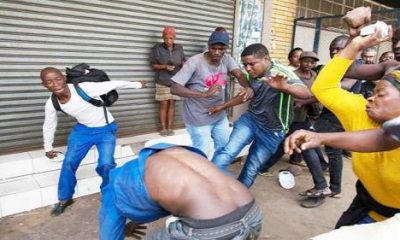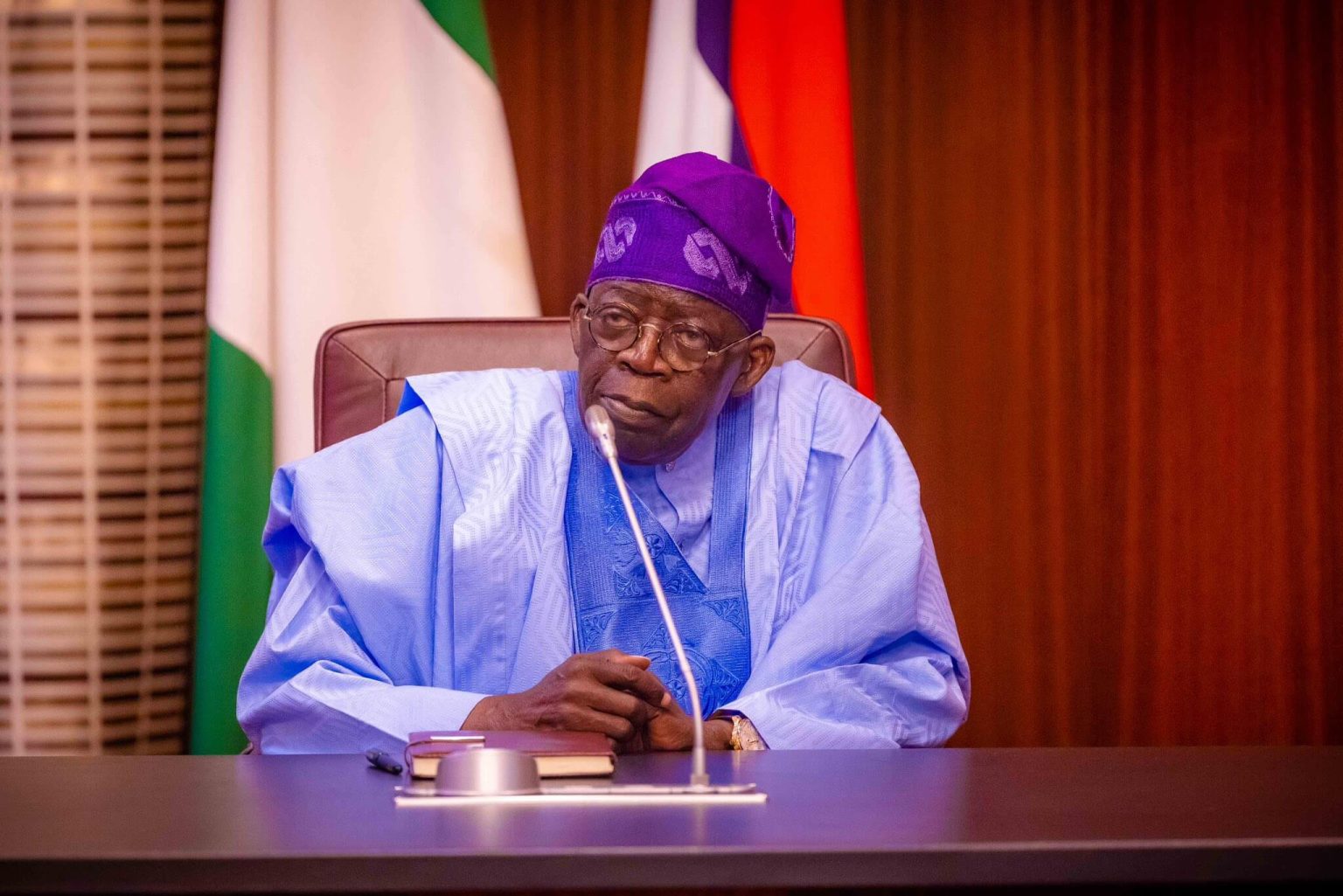Crime
South Africa: Court Grants Gunman Who Killed Anti-Apartheid Hero Parole

South Africa’s highest court has ordered the release of a far-right gunman who killed anti-apartheid hero Chris Hani in 1993.
Eko Hot Blog reports Janusz Walus had committed a “very serious crime”, but he was entitled to parole, the court ruled.
EDITOR’S PICKS
-
US Midterms: Georgia Court Rules Against Halting Saturday Early Runoff Voting
-
US: Lethal Injection Execution Halted Till Further Review In Alabama
-
US: 3 College Football Players Murdered, Game Canceled In Virginia
Hani’s widow Limpho condemned the ruling as “truly diabolical”.
She and the government had vigorously resisted attempts by Walus, 69, to gain his freedom after almost three decades in prison.
Walus killed Hani in a failed attempt to derail South Africa’s transition from white-minority rule to democratic rule.
In his ruling on behalf of the Constitutional Court, Chief Justice Ray Zondo said Walus had nearly plunged South Africa into a civil war after carrying out a “cold-blooded murder”.
But Justice Minister Ronald Lamola’s refusal to grant him parole was “irrational” and he should be released within 10 days, the chief justice said.
He added that “the principle of equality before the law was not just written for those who fought apartheid – but [also for] those who actively supported it”
Justice services ministry spokesman Chrispin Phiri said “a decision has been made by the court, we will have to consider it and apply it.”
Walus killed Hani as he picked up the newspapers outside his home in April 1993 by shooting him at point-blank range in the chin, behind the ear and in the chest.
He was arrested and sentenced to death. The sentence was commuted to life after South Africa abolished the death penalty at the end of apartheid, a legalised system of racial discrimination, in 1994.
Hani’s murder still evokes deep emotions in South Africa. He was regarded as the most popular politician after South Africa’s first black President Nelson Mandela, and his death caused much shock and anger.
He was the leader of the South African Communist Party (SACP), and a senior member of the military wing of the African National Congress, the former liberation movement which is now in power.
Walus’s co-conspirator in the murder, Clive Derby-Lewis, was released on parole in June 2015.
Derby-Lewis had given Walus the gun used to kill Hani. He died in 2016 aged 80.
Walus is a Polish immigrant whose South African citizenship was revoked in 2017.
Some have called for his deportation.
In a statement, the SACP said Hani’s murder had “left a gaping wound in his family, the SACP and the ranks of the working class”.
“The judgment has rubbed salt granules to the wound,” it added.
While in prison, Walus became a symbol for young Polish nationalists and fascists.
Huge banners bearing his portrait were often draped around football stadiums in Poland in 2020 to demand his release.
Janusz Walus had committed a “very serious crime”, but he was entitled to parole, the court ruled.
Hani’s widow Limpho condemned the ruling as “truly diabolical”.
She and the government had vigorously resisted attempts by Walus, 69, to gain his freedom after almost three decades in prison.
Walus killed Hani in a failed attempt to derail South Africa’s transition from white-minority rule to democratic rule.
In his ruling on behalf of the Constitutional Court, Chief Justice Ray Zondo said Walus had nearly plunged South Africa into a civil war after carrying out a “cold-blooded murder”.
But Justice Minister Ronald Lamola’s refusal to grant him parole was “irrational” and he should be released within 10 days, the chief justice said.
He added that “the principle of equality before the law was not just written for those who fought apartheid – but [also for] those who actively supported it”
Justice services ministry spokesman Chrispin Phiri said “a decision has been made by the court, we will have to consider it and apply it.”
Walus killed Hani as he picked up the newspapers outside his home in April 1993 by shooting him at point-blank range in the chin, behind the ear and in the chest.
He was arrested and sentenced to death. The sentence was commuted to life after South Africa abolished the death penalty at the end of apartheid, a legalised system of racial discrimination, in 1994.
Hani’s murder still evokes deep emotions in South Africa. He was regarded as the most popular politician after South Africa’s first black President Nelson Mandela, and his death caused much shock and anger.
He was the leader of the South African Communist Party (SACP), and a senior member of the military wing of the African National Congress, the former liberation movement which is now in power.
Walus’s co-conspirator in the murder, Clive Derby-Lewis, was released on parole in June 2015.
Derby-Lewis had given Walus the gun used to kill Hani. He died in 2016 aged 80.
Walus is a Polish immigrant whose South African citizenship was revoked in 2017.
Some have called for his deportation.
In a statement, the SACP said Hani’s murder had “left a gaping wound in his family, the SACP and the ranks of the working class”.
“The judgment has rubbed salt granules to the wound,” it added.
While in prison, Walus became a symbol for young Polish nationalists and fascists.
FURTHER READING
-
Disney Ex-CEO Bob Iger To Return For 2 Years
-
Indonesia: Earthquake Kills 162 And Injures Hundreds
-
US: Prosecution Rests Earlier Than Expected In Trump Organization Tax Fraud Case
Huge banners bearing his portrait were often draped around football stadiums in Poland in 2020 to demand his release.
Source: BBC
Click to watch our video of the week:
Advertise or Publish a Story on EkoHot Blog:
Kindly contact us at [email protected]. Breaking stories should be sent to the above email and substantiated with pictorial evidence.
Citizen journalists will receive a token as data incentive.
Call or Whatsapp: 0803 561 7233, 0703 414 5611

















